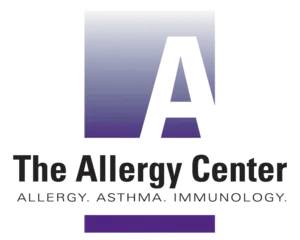Knowing the Signs of Hay Fever
posted: Nov. 25, 2020.
 Hay fever, also known as allergic rhinitis, affects millions of children and around 20 million adults. Of course, it can be easy to mix up the symptoms of hay fever with other problems such as a cold or sinus infection. Wondering if you are dealing with hay fever? Here are the telltale signs:
Hay fever, also known as allergic rhinitis, affects millions of children and around 20 million adults. Of course, it can be easy to mix up the symptoms of hay fever with other problems such as a cold or sinus infection. Wondering if you are dealing with hay fever? Here are the telltale signs:- Nasal congestion
- Runny nose
- Sneezing
- Coughing
- Red, watery, or itchy eyes
- Postnasal drip
- Swelling under the eyes
- Fatigue
With hay fever, you may notice your symptoms occurring during certain times of the year. For example, people who are allergic to tree pollen or grass will notice hay fever symptoms getting worse around the spring and summer months, while those allergic to ragweed will notice symptoms flaring up in the fall.
How do I know if it’s hay fever and not a cold?
We know that many respiratory conditions present with the same group of symptoms, so it can be difficult to know whether it’s just a cold that will pass you by or it’s hay fever allergies. Here’s how to spot the difference:
Check the nasal discharge: While it might sound a little unpleasant, checking the color of your nasal discharge can clue you in on whether you are dealing with hay fever or a cold. Hay fever will produce clear discharge while a cold or any kind of nasal infection will lead to yellowish or greenish discharge.
Itching: If you are dealing with an itchy throat or eyes these are usually symptoms of hay fever and not a cold.
Sore throat: Dealing with a sore throat? If so, this is probably a sign that you are about to get a cold. If you’ve been noticing a mild sore throat along with runny nose, nasal congestion, and sneezing then it’s most likely a cold rather than hay fever.
How do you treat hay fever?
If your symptoms are only slightly irritating, then you may be able to get away with taking an over-the-counter antihistamine and altering your lifestyle to accommodate those times of the year when hay fever symptoms seem to rear their ugly head.
However, if you aren’t sure whether you are dealing with hay fever, or if your symptoms are serious, then you should talk with your allergist about a prescription medication that can help alleviate symptoms. An allergist can provide you with antihistamines, steroid nasal sprays, and decongestants.
If you find yourself constantly rubbing your eyes, wiping your nose, or dealing with sinus pressure then you should talk with an allergist about whether you could be dealing with hay fever and how to get this problem under control.

